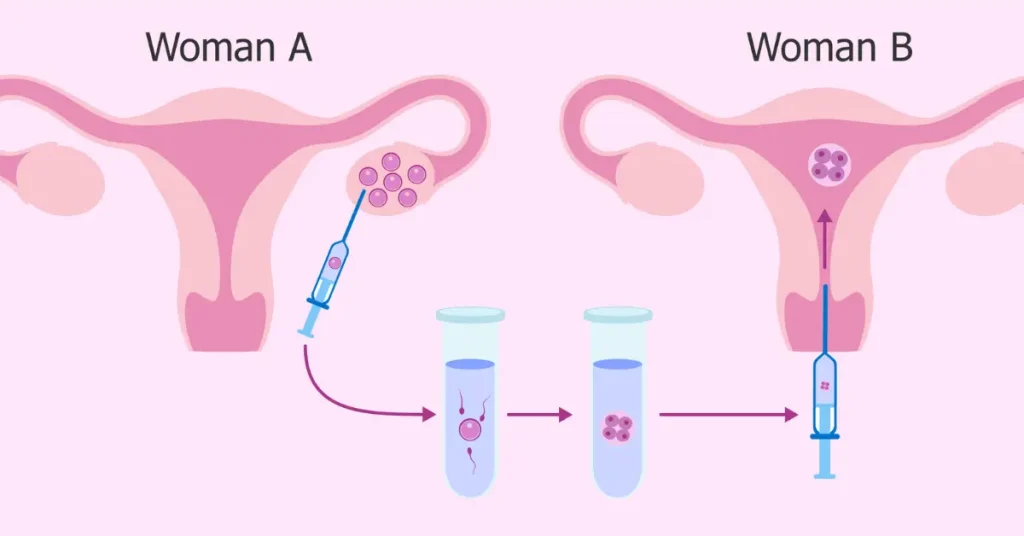In 2025, major changes reshaped the landscape of Greece surrogacy laws. These updates have significant implications for both local and international intended parents. At Gaia Fertility, we understand how crucial it is to stay informed and prepared. This guide breaks down the latest legal shifts, eligibility rules, and procedural steps to help you navigate your journey with clarity and confidence.
Current Greece Surrogacy Laws: Has Something Changed in 2025?
Yes, and the changes to Greece surrogacy laws are significant. In May 2025, Article 46 of Law 5197/2025 was enacted, altering the framework for medically assisted reproduction. Now, both the intended mother and the gestational carrier must legally reside in Greece for the court to approve an arrangement. This means international intended parents without legal residence in Greece can no longer apply through the Greek courts.
Additionally, an amendment to Article 1350 of the Civil Code now prohibits single men and male same-sex couples from becoming parents via this method. These legislative changes aim to clarify legal definitions and address concerns about potential exploitation.
The current greece surrogacy laws create barriers for many hopeful parents. Following the April 2025 amendment to family law, same-sex male couples and single men are explicitly prohibited from becoming parents through this method. This restriction comes despite the country legalizing same-sex marriage in 2024.
Who Can Access Surrogacy in Greece: Legal Requirements for Intended Parents
Under the current legal framework, access is limited to heterosexual couples (married or unmarried) and single women. The intended mother must provide medical proof of infertility and should not exceed 50 years of age. These requirements ensure that the process is reserved for those with genuine medical needs. Please note that the new laws mean international intended parents can no longer apply for surrogacy through Greek courts unless they already have legal residence in Greece, as mentioned above.
It’s important to note that all arrangements must be altruistic. Compensation for gestational carriers is capped at approximately $12,000 to cover pregnancy-related expenses. This regulation aims to prevent commercial exploitation while acknowledging the surrogate’s commitment.
Eligibility Criteria for International Intended Parents
The situation for international parents has dramatically changed under the revised greece surrogacy laws. Before May 2025, the nation was a popular destination for couples and women with medical fertility issues from Australia, the UK, and across Europe. The system offered court oversight and a regulated framework that was considered ethically sound.
Now, international intended parents can no longer apply through the local courts, unless they already have legal residence in the country. This new restriction has significantly limited options for foreign families seeking this path to parenthood.

The Legal Process for Working with a Surrogate Mother in Greece
Despite recent restrictions, understanding the legal process within the greece surrogacy laws remains important for those who qualify. The legal framework permits only altruistic gestational arrangements. All other forms—traditional, commercial, and social—are explicitly prohibited by law.
The legal process in Greece is structured to ensure clarity and protection for all parties involved. Intended parents must secure court approval before embryo transfer, a process that can take around eight weeks. This step is crucial to establish the legal parentage of the intended parents from the outset.
A written contract (note, source is not directly from a greek one) between all parties is legally required, even for altruistic arrangements. This agreement must be reviewed and approved by a court before proceeding. The contract and supporting documentation must address specific issues before approval is granted. Working with a local lawyer experienced in these matters is strongly recommended to navigate the complex legal requirements.
Other Countries To Consider For Surrogacy Instead
With the new restrictions, many families are looking elsewhere for their journey. Georgia remains a popular option with its supportive legal framework for heterosexual couples. North Cyprus offers more flexible programs with fewer restrictions and lower costs than many European alternatives. Albania is emerging as a newer destination with developing programs worth exploring.
Other possibilities include Colombia, where certain regions have well-established frameworks. The United States provides the strongest legal protections but at higher costs. Ukraine was once popular but has faced challenges due to conflict. Each country has unique requirements, so it’s worth chatting with an agency about which might fit your situation best

Is Surrogacy in Greece Right for You? Final Considerations
After reviewing the recent changes to the greece surrogacy laws, you might wonder if this path is suitable for your family-building journey. For those who meet all requirements—including having legal residence in the country and meeting the medical criteria—it remains a possibility with strong legal protections for intended parents.
However, many hopeful parents may need to explore alternatives. While some European countries have tightened their regulations, the United States continues to provide a more consistent and inclusive legal framework, even if it is much more expensive in the long run.
At Gaia Fertility, we understand how challenging navigating the greece surrogacy laws can be. We’re committed to helping you explore the complex and ever-changing landscape of reproductive options worldwide. While recent changes have limited possibilities in some regions, we can help you find ethical and legal alternatives that match your family-building goals.

FAQ
What are the Greek laws around the surrogacy process?
The surrogacy process in Greece follows strict regulations. The Greek Civil Code only permits altruistic gestational surrogacy arrangements. Courts must approve all contracts before proceeding. Recent changes require both parties to legally reside in Greece, and the intended mother must be under 50 with medical proof of inability to carry.
What is the surrogacy law in Greece?
Greece surrogacy law permits only altruistic arrangements where the surrogate can receive up to $12,000 in compensation. The law prohibits traditional measures. An egg donor cannot be the same person carrying the pregnancy. Single women and heterosexual couples are eligible, but single men and same-sex male couples aren’t.
Is there a surrogacy program in Greece?
Yes, Greece has surrogacy programs, but with major 2025 restrictions. The procedure is available only to residents of Greece now.















